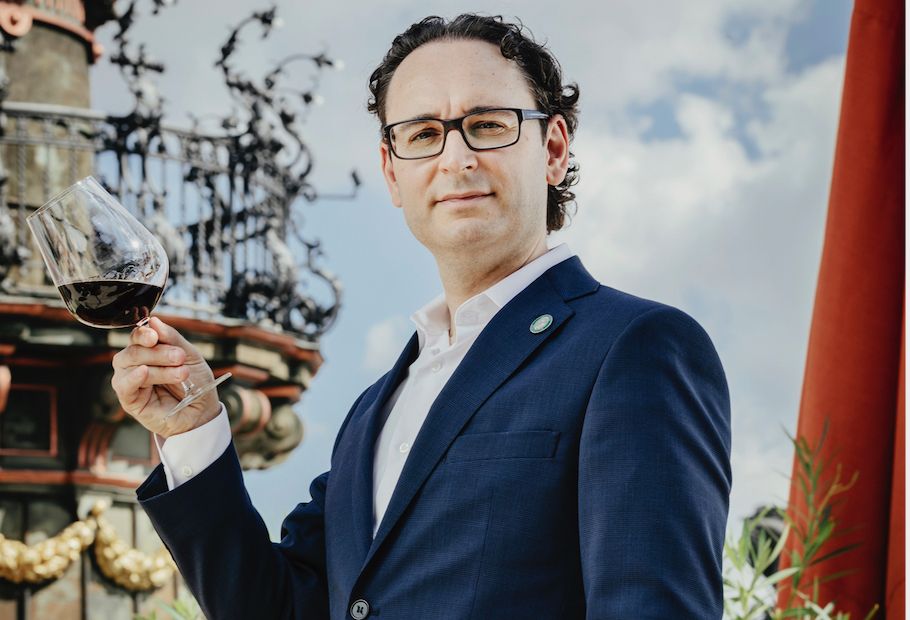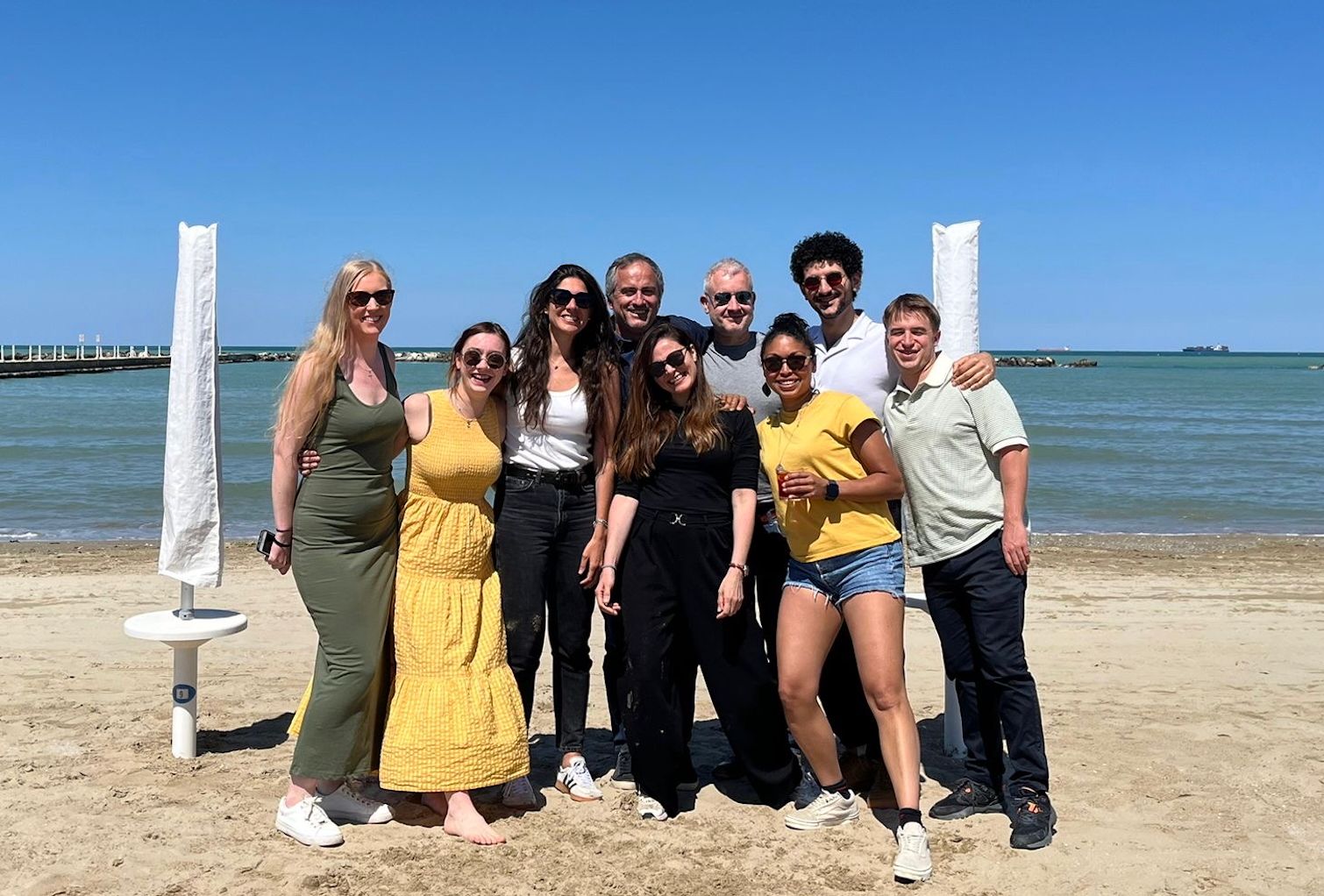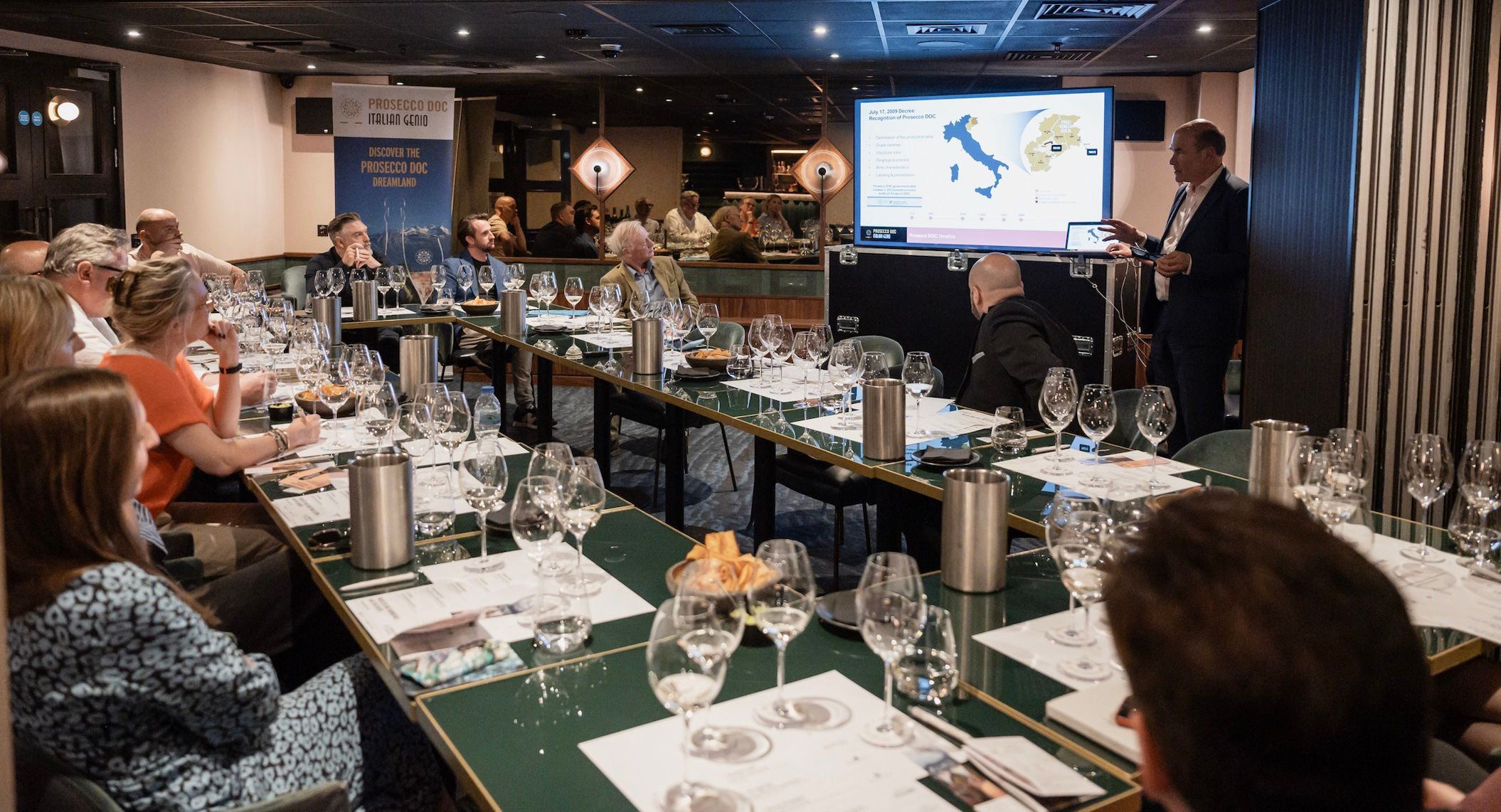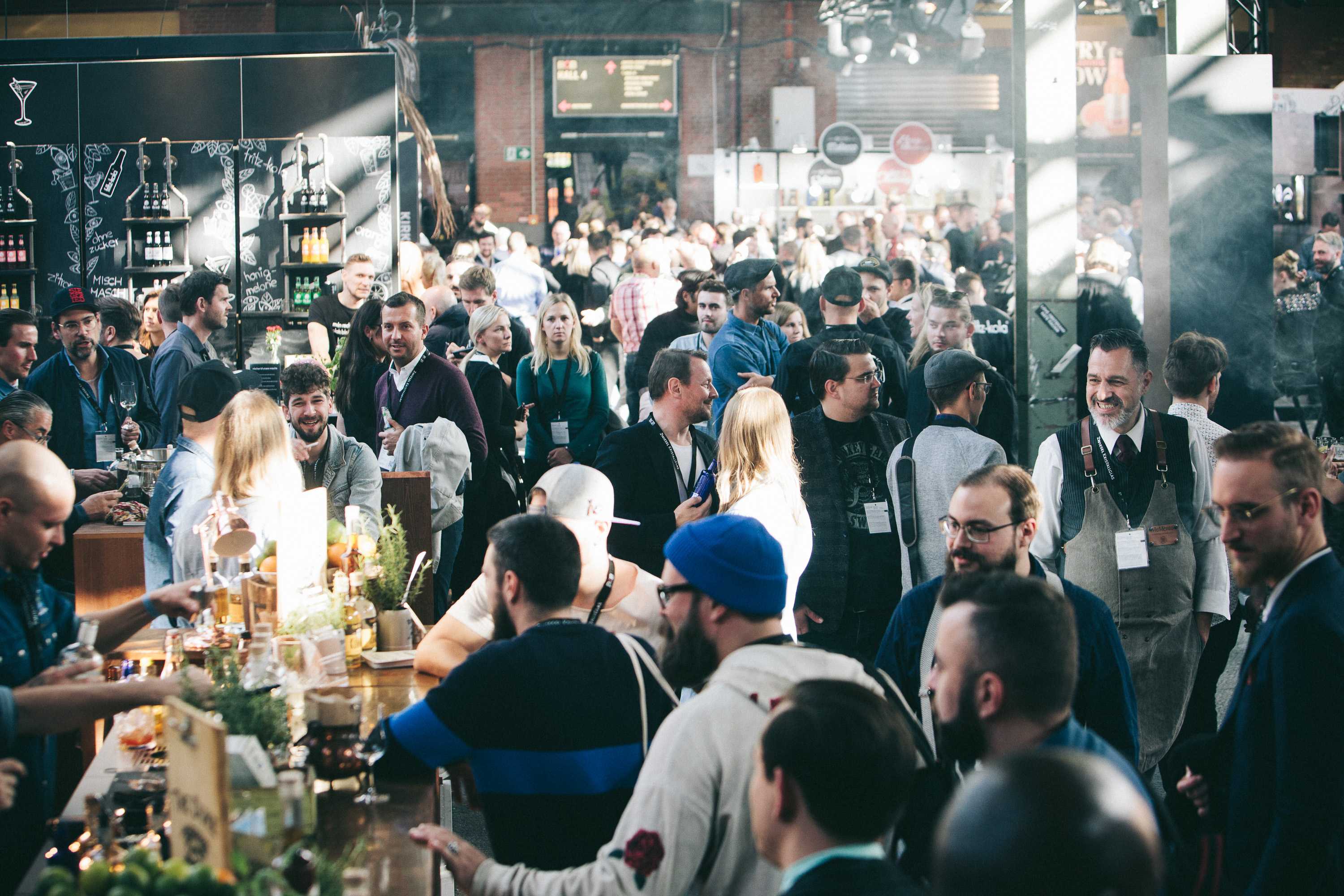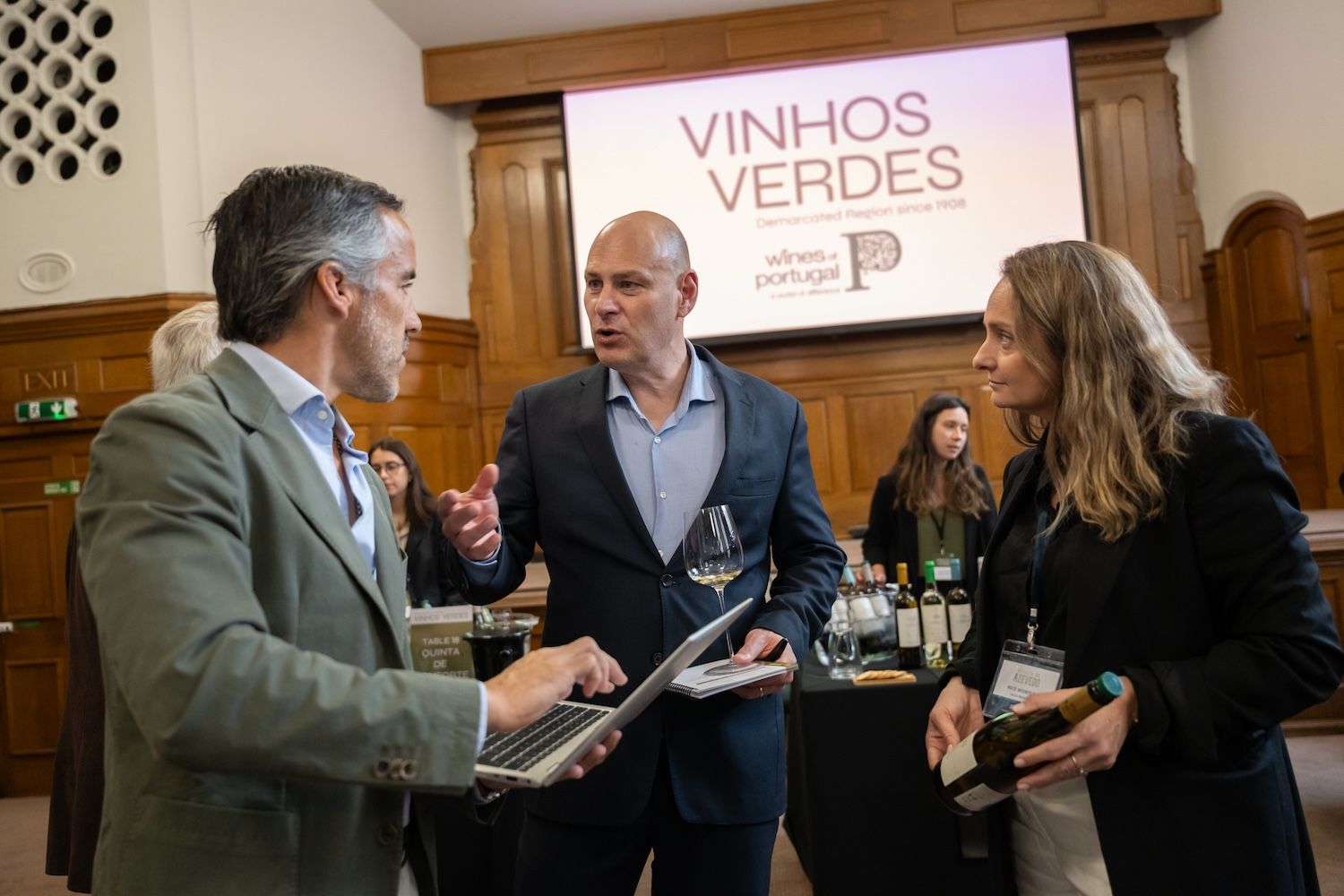“Training, training and more training with all members of staff” is what Agustin Trapero believes is vital for any leading sommelier to be able to get the most out of the wine list and restaurant’s wine operation they are in charge of.
Why did you want to be a sommelier?
I actually became a sommelier by chance in the UK, when I came with a few friends to London 20 years ago to learn English. I started working in restaurants in order to earn some cash working and started tasting some wines and then suddenly I was happily “trapped” in this wonderful world of wine.
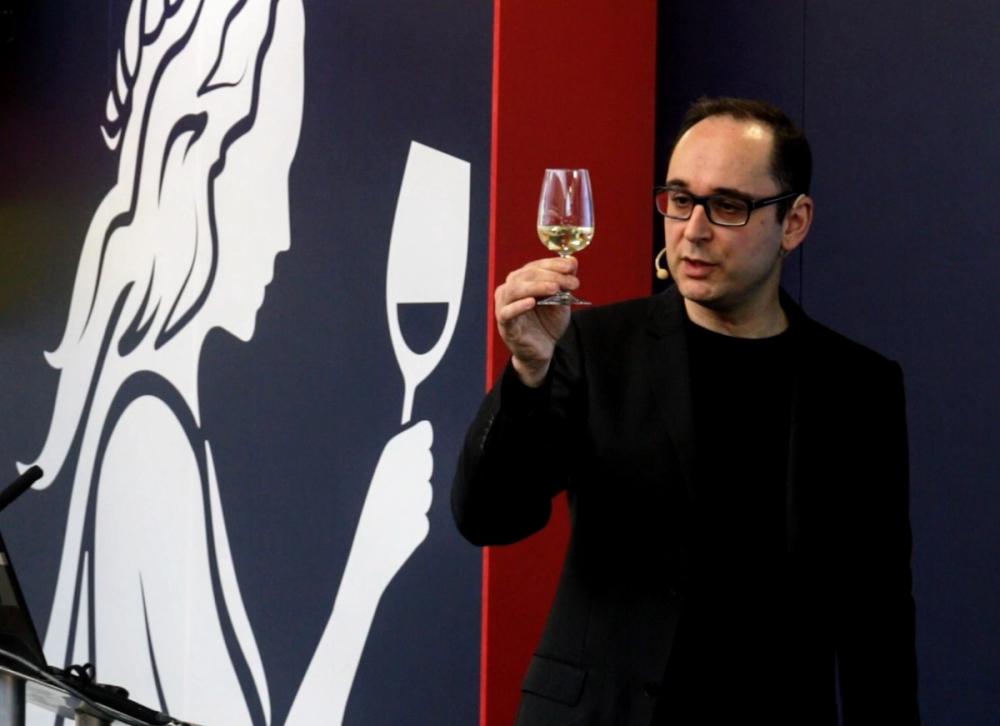
Agustin Trapero holding court leading a tasting at the London Wine Fair
How have you progressed in your career?
I started as a commi sommelier in a hotel in Oxford, polishing glasses, preparing mise en place and supporting the senior sommeliers bringing them bottles and everything that they needed on the floor. One of my first mentors was Giuseppe Vurchio, he was the person that really put me into wine and awakened my passion about it. I began to study all the WSET courses and in 2012 I got my Diploma and reached the Court of Master Sommelier Advanced level.
I am currently studying for my Master Sommelier exams. As Guiseppe used to say to me: “Knowledge gives you confidence, so never stop learning”.
What is involved in your current role and your main tasks?
I am driving the beverage programme at the new Four Seasons Madrid. It’s a huge operation and has a number of different outlets so my days are very busy and complete. It’s a big responsibility as a new hotel needs to be built from a strong base, in order to progress and continue to grow stronger.
I spend a lot of time on service, as well as holding a lot of meetings with suppliers and having internal work meetings. I put special emphasis on developing training for hotel staff and wine strategies to maximise sales.
If you were given a restaurant to fix their wine program and grow wine sales where would you start and what steps would you to take?
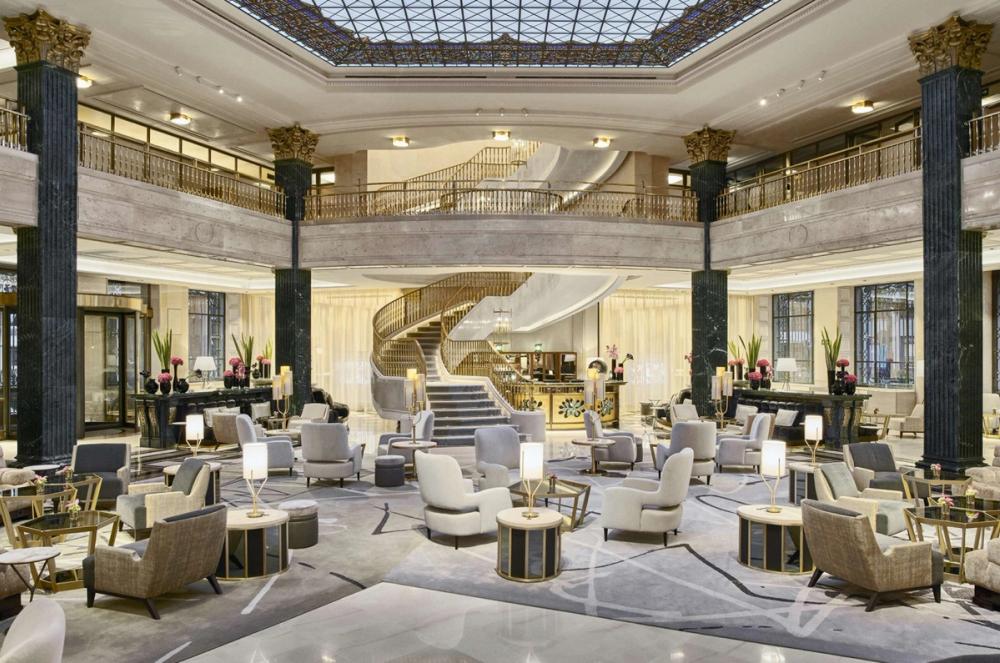
Trapero is in charge of the beverage offer at The Four Seasons Hotel in Madrid
The first thing to do is to know the philosophy of the restaurant and its main focus (seafood restaurant, steak restaurant…etc), its location, and then know your customers, what they want, what they like, and what is the average spend per cover. The key is to minimise your costs, whilst maximising the revenues the restaurant can achieve. To do that can involve a number of factors like rotating dead beverage stock, speaking with suppliers to get more flexibility in what they can offer and then working with the kitchen team and chefs to create special dishes that can be matched with a particular wine or beverage.
Above all, though, it is about training, training and more training with all members of staff. You can’t sell anything that you are not familiar with.
What questions would you ask of the restaurant owner to know what sort of wine list to create?
A lot. The more information you can get, the better. It is essential to get the project right from the beginning, as if you get it wrong, you can really screw everything up. If you don’t have the right information and a good business plan, a lot of key decisions could lead to disaster, have an impact on the owner’s debts and eventually lead to jobs loss. So my first question would be: “What is the real budget for this project?”
What do you most look for and want from wine suppliers to help drive sales?
I take the relationship with suppliers very seriously, it is a fundamental part of my duty, for the benefit of both sides. I always ask for honesty, respect, efficiency, commitment and truthfulness from them. If you have those in place, your life is much easier.
What does success look like for you from a wine programme?
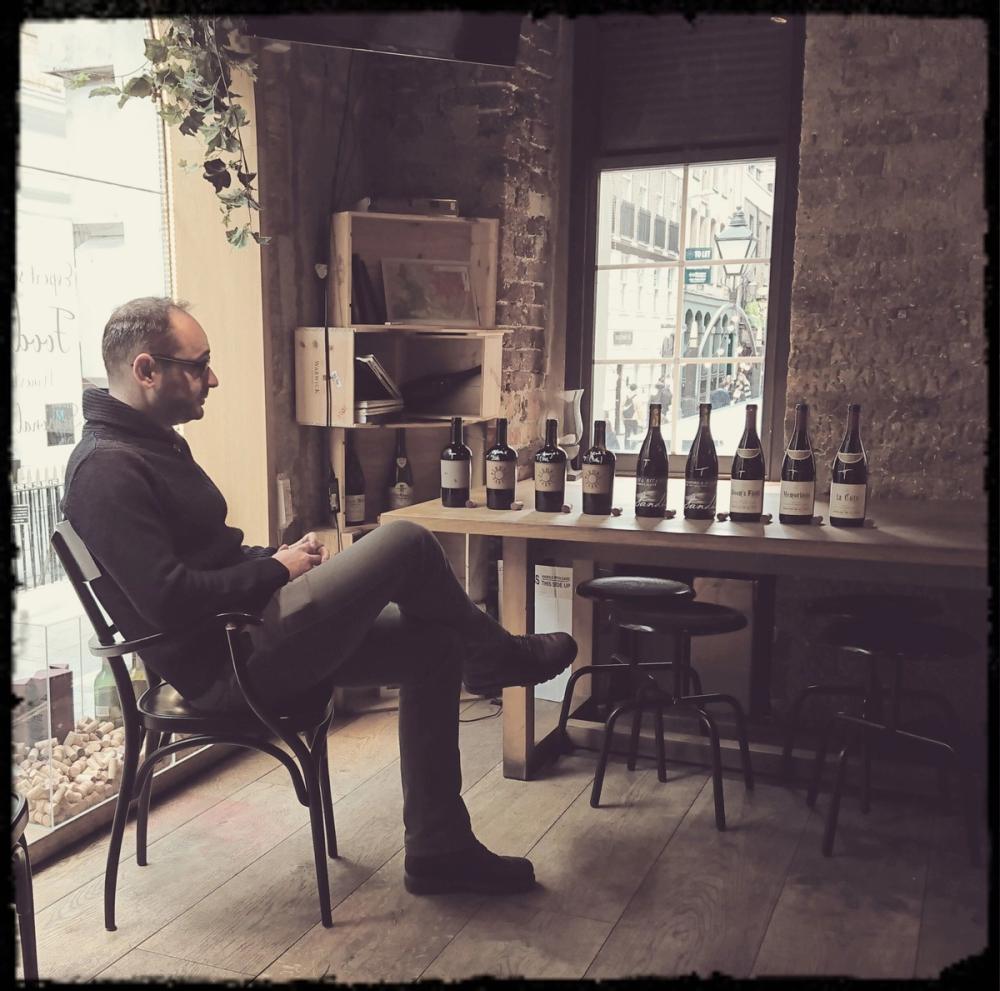
Agustin Trapero taking part in a California tasting in London
First of all, it has to be profitable. It is beautiful, magical and exciting to have 30,00 references of wine from around the world on a list but we need to be realistic about where we are and how we manage it. At the end of the day we are buyers and sellers, and the beverage takes between 35% to 50% of the restaurant income. So we can not fail.
There are few points that show you when your wine programme is working well, but for me there are two main points.
Stock rotation: If you manage to have a well rotated wine list, it is a sign of a good healthy wine programme, and shows your customers trust your sommelier team and their recommendations. It also reflects a restaurant and a team that is open minded and willing to stay away from routine or classic selections. This will allow you to continue to expand your wine programme and keep satisfying your guests needs.
Profit: We are business people, we have been hired to succeed in our job by generating revenue for our companies, which is essential in any business.
How have you devised the wine list and wine programme at your venue – what are the key factors about the list that help the bottom line?
In my case it is a bit different and special, as we opened Four Seasons Madrid in 2020, in the middle of the pandemic, so we had to take extra measures.
But as a general role it’s important to know the philosophy of the restaurant that you will be operating. For instant, here at Four Seasons Madrid we have Dani Brasserie which is our main restaurant, Dani Garcia (chef) is from south of Spain (Malaga) and he has brought that style of cooking to the restaurant. It means we put a lot of importance on having high quality seafood, tuna and fish in general. So my focus is to complement his cuisine and put the emphasis on fresh white wines, sherry, sparkling wine or light red wines.
Isa (our Cocktail Bar) is a fusion of Iberian and Japanese styles, so sakes, artisanal beers, Japanese whiskeys and premium spirits are more important. Patio (our lounge) is an all day operation space. So you will have more classic options such as nice Ribera del Duero or Rioja wines.
It’s important to analyse the location where your venue is, the kind of customers you will have to deal with, and the style of cuisine your outlet will be focused on in order to develop an appropriate and successful wine programme.
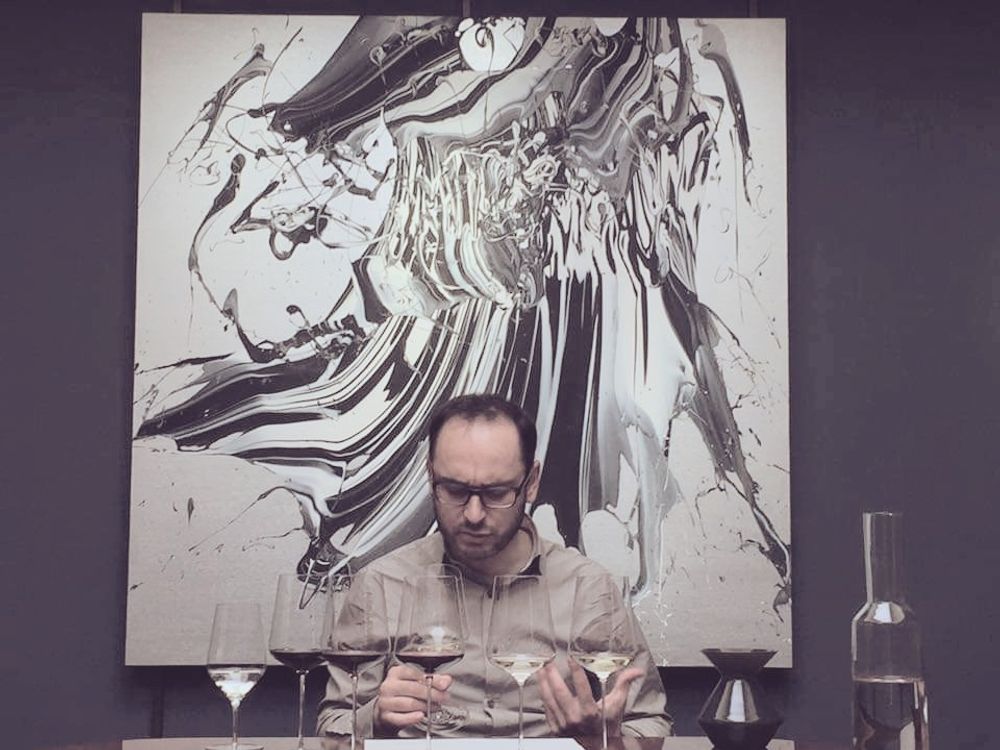
Trapeo taking part in a blind wine tasting for his Master Sommelier exams
What are the key four things you focus on to be good in your role?
- Training staff to provide an excellent service and experience to our customers.
- Strong relationship with beverage suppliers, my success will be their success and vice versa.
- Implementing the right business plan in my outlets, and have control of the P&L.
- Developing people, to build strong teams and improve their careers with us, which means having the right person in the right position, and making them feel comfortable and confident within the company so that we can retain those talents for the hotel.
What do you think sommeliers spend too much of their time on which is not that important?
Egos, time is precious nowadays, so don’t waste it on justifying your professional decisions or actions. Just focus on what you believe in and be less interested in what others might say about it and enjoy what you do.
What are the criteria you look for in a wine when deciding whether to include it on your wine list or not?
I don’t really have any specific criteria, as long as the wine is of the right quality for my venues and fits their style of cuisine.
What do you see as being the key skills and talents needed to be a good sommelier?
Every sommelier should have be able to understand customer psychology, have very good communication skills and be business awareness. Then they need to have a deep knowledge about wine in general. Beyond that, you don’t really need special skills for being a sommelier, as all sommeliers are driven by their passion about wine, and that says it all.
How do you evaluate the success and effectiveness of a good wine program.
- You can find our more about Agustin Trapero at his website here: www.agustintraperosomm.com.
- You can read other profiles on sommeliers around the world and how they run their wine lists at London Spirits Competition by clicking here.
